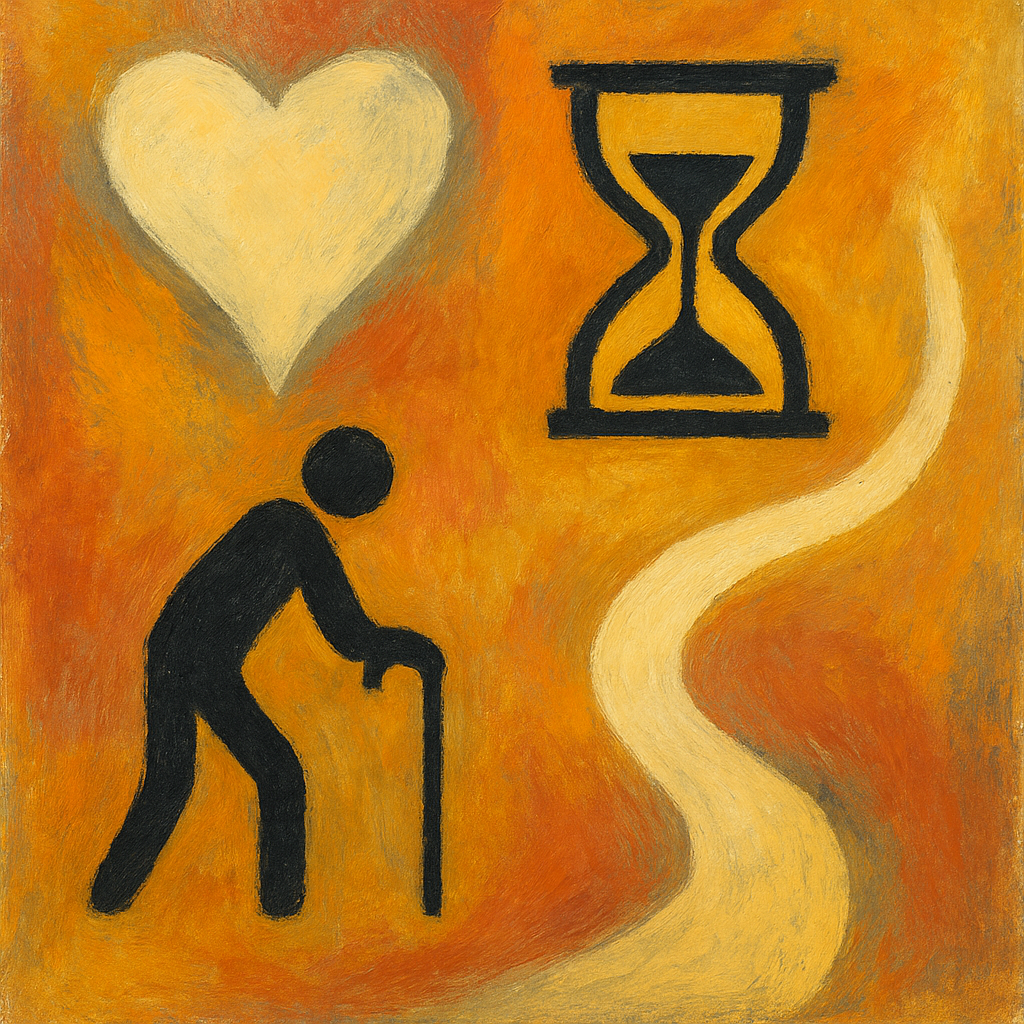
ChatGPT:
Let’s Talk About Death
Every Wednesday, a group of us—old classmates from university days, now all in our early seventies—gather online for a Google Meet. We’ve been doing this for a while, catching up on news, sharing ideas, sometimes complaining about our aches and medications. Fifty years ago, we were fresh-faced students, buzzing with ambition and curiosity. Now, the wrinkles and white hair are proof of a long journey, but the energy to talk about “anything and everything” still remains.
This week’s topic was unusual, though maybe inevitable: “Let’s talk about death.”
One of our classmates, who had just gone through a major operation, brought it up. It was brave of him—turning his personal brush with mortality into a collective reflection. He asked us all: “If you had only one day left, or one year left, what would you do?”
The answers came in waves, some expected, some surprising, all revealing.
One Day Left
Most people leaned toward farewells.
- Many said they would want to say goodbye to all their loved ones, friends, and relatives. Some imagined writing letters, others thought of phone calls or visits.
- One classmate said he would organize a grand farewell party—all friends gathered, music, food, maybe a bit of wine. Why not go out in style?
- Another suggested holding a whole-day Google Meet to say goodbye, leaving not just words of affection but also clear instructions about personal affairs—like a digital last will and testament. Practical and modern, in its way.
I listened to all this with admiration but also a touch of curiosity. When I thought about my own last day, I realized I didn’t immediately think of goodbyes. Maybe I’m wired differently. My first thought was: I’d still want to care for my aging parents. They depend on me, and responsibility doesn’t vanish just because my time is short. If there were any hours left after that, I might want to slip in a little travel, or even learn something new. A final spark of curiosity, right to the end.
Was that cold-blooded of me? I don’t think so. Others seem to need the ritual of farewells. For me, love is already lived in action—I don’t feel the urge to rehearse it at the end.
One Year Left
The answers here were more varied and colorful.
- Several said they would spend it doing what they loved most—traveling, painting, reading, cooking, gardening, or simply being with their families.
- A few wanted to arrange everything in order: paperwork, finances, even closets—so their children would not be burdened. The recurring theme was: “I don’t want to bother my kids.” That seems universal. At seventy, we all understand how heavy a parent’s “unfinished business” can be.
- Some spoke of enjoying life more fully—eating well, seeing friends, maybe revisiting favorite places.
- One classmate, with a grin, said he’d keep working on his computers until the very end. For him, that’s the meaning of life—not stopping, not retiring, just tinkering away until the last breath. I admired that clarity.
As for me? If I had a year, I would want to take care of my parents, of course. Beyond that, I’d love to explore places I’ve never been, and dive into subjects I still don’t fully understand. Astronomy, geology, neuroscience—fields I don’t belong to professionally, but love to learn about. Curiosity, for me, isn’t just a pastime. It’s fuel.
The Meaning of Death
When it came to the meaning of death, the answers grew quieter.
- Most of my classmates admitted they don’t really think about it much.
- Some simply said: “I just hope to die healthy, and without too much pain.” That was the most common sentiment—less about philosophy, more about comfort.
- A few expressed belief that there might be something after, though they didn’t elaborate much.
- Most had no opinion—neither religious nor atheistic. Just a shrug: “Who knows?”
And me? I don’t believe in any afterlife. I don’t think about heaven, reincarnation, or cosmic recycling. For me, the meaning is in the moment: the living, breathing present. Who knows what tomorrow will bring? That’s enough.
Reflections
Listening to everyone, I realized how differently we frame our final moments. Some think in terms of closure—saying goodbye, arranging affairs, leaving the world neat and tidy. Others think in terms of continuation—working, learning, exploring, as if the end doesn’t erase the value of the last act.
Fifty years ago, we were classmates in the same classrooms, learning the same lessons. Today, our answers diverge in style and tone, but they all carry the same undertone: love, responsibility, and meaning. Whether it’s through a farewell party, a tidy will, a final project, or caring for parents, the themes overlap.
What touched me most was how much we still care for one another. Even when joking, even when disagreeing, the spirit of “同聲相應,同氣相求”—responding with the same voice, seeking the same breath—still lingers in our group. Not every answer matched mine, but that’s not the point. The point is that after fifty years, we are still talking, still listening, still curious about each other’s lives and thoughts.
Death is inevitable, yes. But as long as we keep showing up on Wednesdays, laughing, debating, and even daring to talk about endings, we are still very much alive. And maybe that’s the most important thing.
